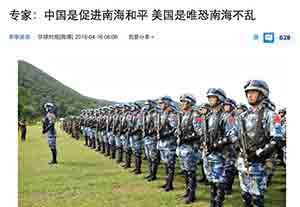 Dan (pronounced dahn) Chen, assistant professor of political science and Asian studies at Elizabethtown College, took an early interest in propaganda — the use of biased or misleading information to publicize a political point of view. In spring 2016 she turned her attention to the specifics of propaganda in China, a place where its usage is well known.
Dan (pronounced dahn) Chen, assistant professor of political science and Asian studies at Elizabethtown College, took an early interest in propaganda — the use of biased or misleading information to publicize a political point of view. In spring 2016 she turned her attention to the specifics of propaganda in China, a place where its usage is well known.
Basing her research on propaganda in other areas, at other times — Nazi Germany misinformation; anti-American sentiment in Arab countries; and media control in Zimbabwe — Chen explored the effects of propaganda on Chinese political ideology, where alternative thought is suppressed and information flow is strictly controlled.
“Propaganda is integral to authoritarian rule,” Chen wrote. “Yet questions remain regarding which propaganda themes are effective at influencing which opinions and to whom.”
Funded by a “starter grant,” given to a junior faculty member at E-town, Chen conducted an online experiment analyzing online Chinese propaganda. All readers in the experiment were Chinese internet users. She measured their responses to agenda-setting, framing and priming in news articles to see if the readers’ views changed about government performance and policy after reading the editorial content.
Her survey included three themes common in Chinese propaganda: leader praise, economic achievements and nationalism. She also focused on the educational and information levels of those taking part.
“I originally expected all three themes would enhance the reader’s feelings,” she said. She was surprised to find that “only the ‘leader praise’ theme enhanced (the reader’s) feelings on the government. The other two showed no effect.”
In addition, she found that “propaganda effects differ for people of varying levels of political information.”
Chen said she thinks the same survey given in a democracy such as the United States would have far different results. “Persuasion would take effect based on a different mechanism in democracies.”
The research, Chen said, helps her interaction as she teaches research methods with students in the classroom. “Experiments are still a new method to political science … I can teach the steps of research and the outcomes.”
In addition to using the survey results in the classroom, Chen presented her findings at a conference, and her research is under review for publication.

